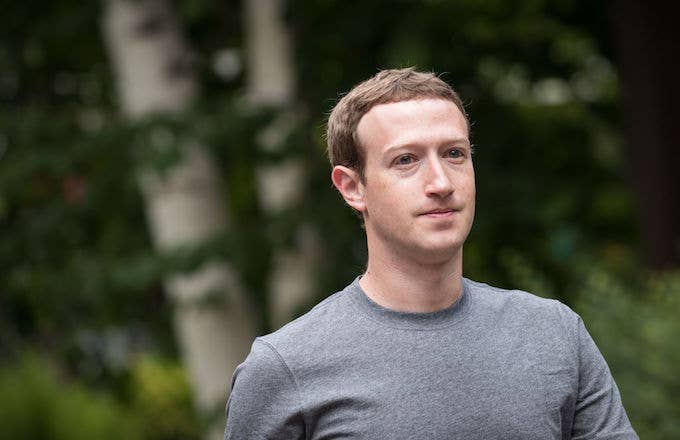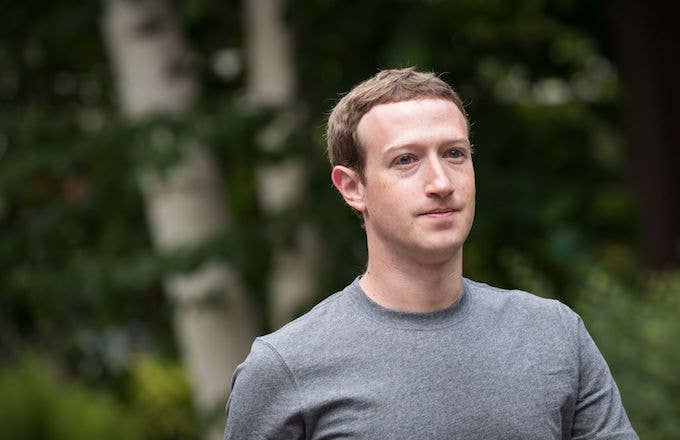
Did you know Michelle Obama is a man who murdered Joan Rivers? No? That’s because you’re not letting Facebook keep you informed on national events.
For the past 19 months or so, fake news has exploded on the internet, exposing people around the world to bizarre and dangerous lies disguised as legitimate journalism. Many of these stories are pushed on popular websites and apps like Twitter, YouTube, Reddit, Google, and, of course, Facebook. The last of these has become the most prominent vehicle for the distribution of fake news, so much so that its founder Mark Zuckerberg was recently named the 2017 “Misinformer of the Year.”
The annual honor is presented by Media Matters for America, a nonprofit progressive organization that’s dedicated to correcting misinformation in U.S. media. Past recipients of the “Misinformer of the Year” award include talk show host Glen Beck, conservative political commentator George Will, and media mogul Rupert Murdoch. The group has also given the honor to organizations and news outlets that it deems “the most influential or prolific purveyor of misinformation” each year.
So why was Zuck chosen for 2017?
Media Matters President Angelo Carusone explains:
“We selected Mark Zuckerberg as the Misinformer of the Year because Facebook's actions in 2017 have been more of a public relations campaign than a deeper systemic approach to address the underlying causes of the proliferation of fake news and disinformation,” Carusone wrote. “I know that Facebook has the talent and knows how to implement some meaningful countermeasures. Instead of utilizing that talent, Zuckerberg has spent too much time downplaying the crisis and repeating his mistakes from 2016, like continually caving to right-wing pressure. There are some very basic things that Facebook can do to make meaningful dents in this problem—and my hope for 2018 is that Mark Zuckerberg lets his team take those steps and more.”
Zuckerberg addressed the issue of fake news back in 2016, shortly after the presidential election. He acknowledged that Facebook was a platform for misinformation; however, he insisted it wasn’t as big of an issue as many made it out to be. He later admitted that it was a mistake to downplay Facebook’s role in the distribution of fake news.
“After the election, I made a comment that I thought the idea misinformation on Facebook changed the outcome of the election was a crazy idea. Calling that crazy was dismissive and I regret it,” he wrote on Facebook back in September. “This is too important an issue to be dismissive. But the data we have has always shown that our broader impact—from giving people a voice to enabling candidates to communicate directly to helping millions of people vote—played a far bigger role in this election […] We'll keep working to ensure the integrity of free and fair elections around the world, and to ensure our community is a platform for all ideas and force for good in democracy.”
Yes, the site has implemented a “trust indicator” icon on news stories and a third-party fact-checking system; however, Media Matters argues Zuck and Facebook haven’t done enough to fix the problem, which is concerning when you look at recent data.
According to a 2017 survey by the Pew Research Center, about 45 percent of U.S. adults use Facebook, and most of those users get their news from the site. An exclusive Ipsos poll for Buzzfeed News revealed even more concerning data: About 75 percent of Americans are fooled by fake news headlines, considering them “somewhat” or “very” accurate.
“Given the collapse of the news industry over the last decade, there is no shortage of journalists with experience at verifying information and debunking falsehoods,” Media Matters’ Matt Gertz wrote in a blog. “Facebook could hire thousands of them; train them; give them the actual data that they need to determine whether they are effective and ensure that their rulings impact the ability of individual stories to go viral; and penalize websites, associated Facebook pages, and website networks for repeat offenses.
“If Zuckerberg wants Facebook to be a ‘personalized newspaper,’ he needs to take responsibility for being its editor in chief.”

